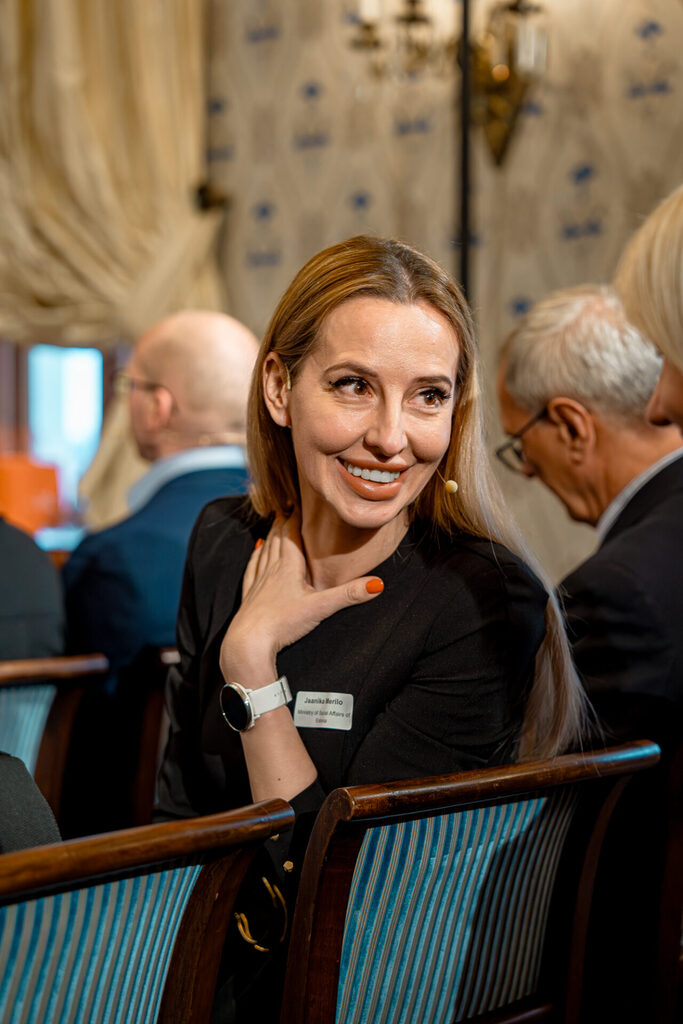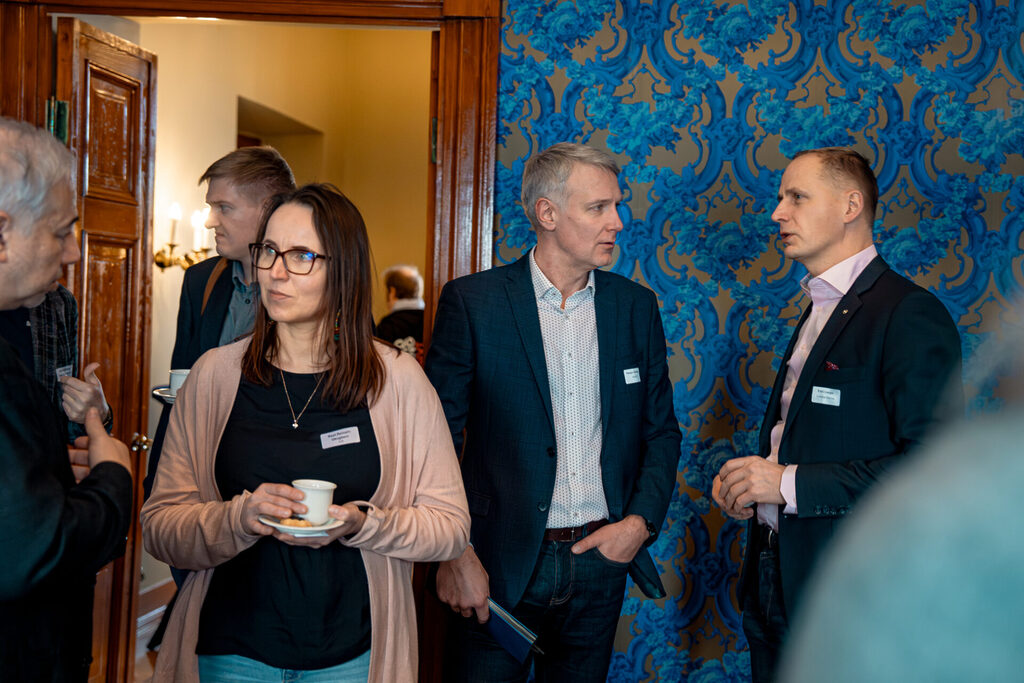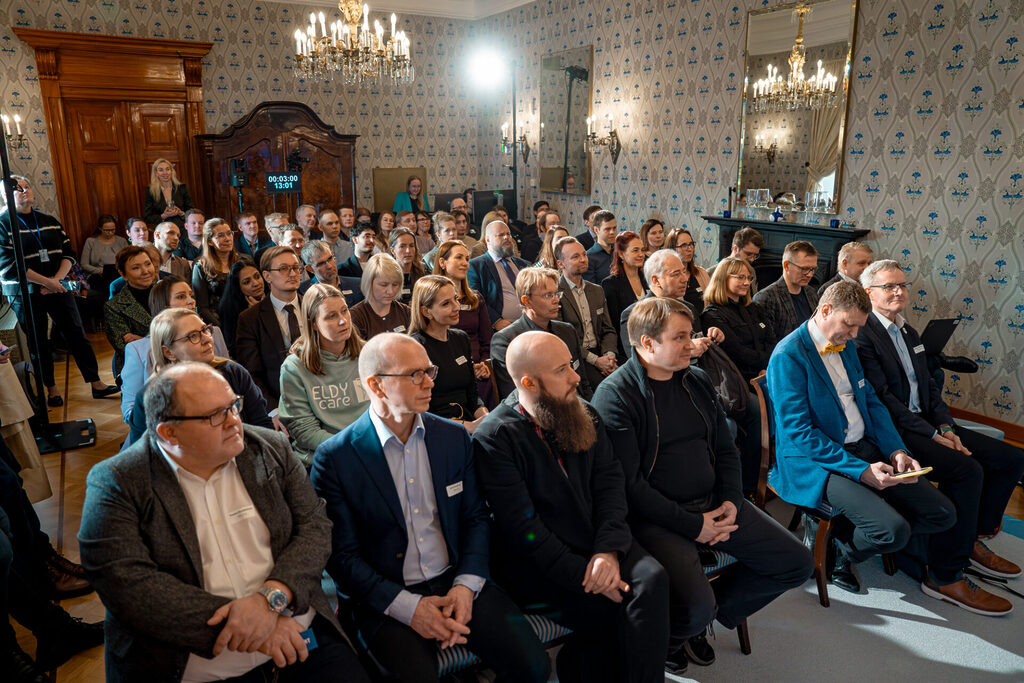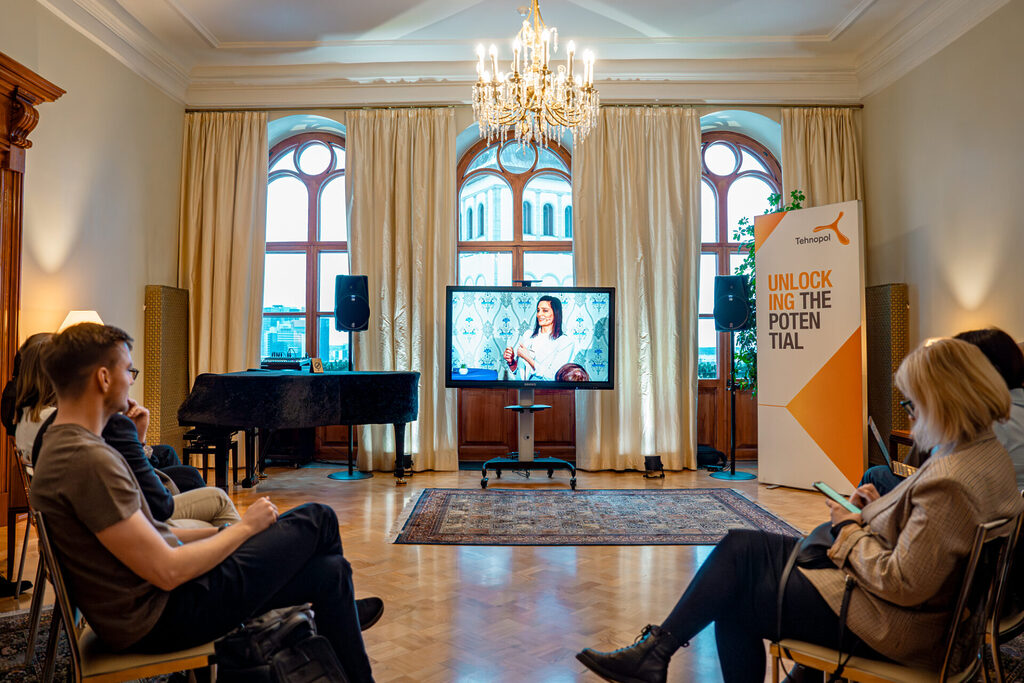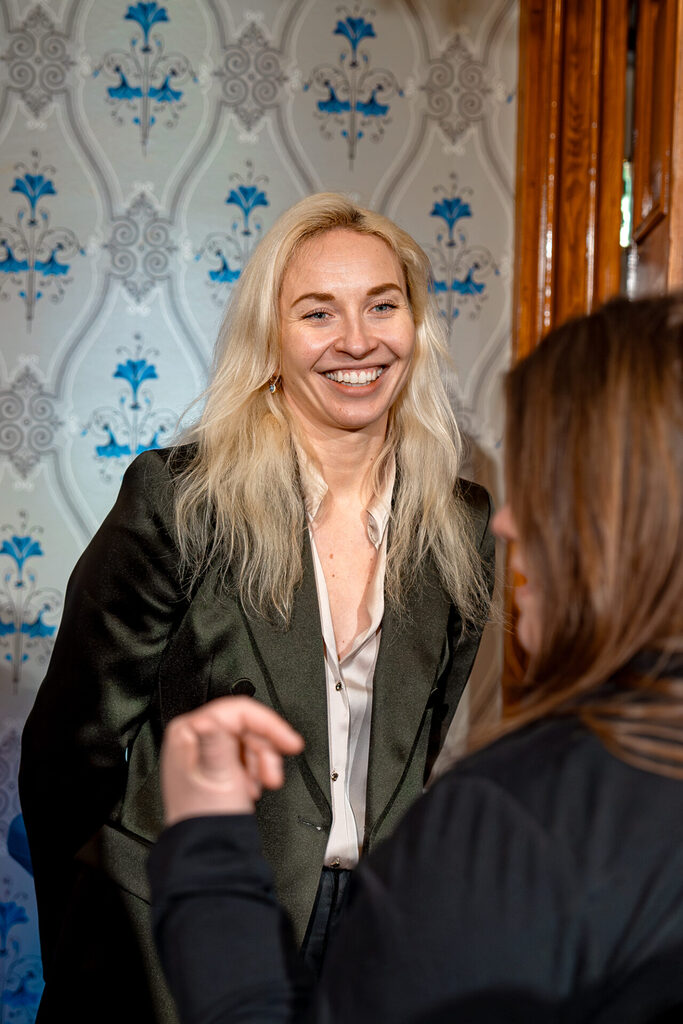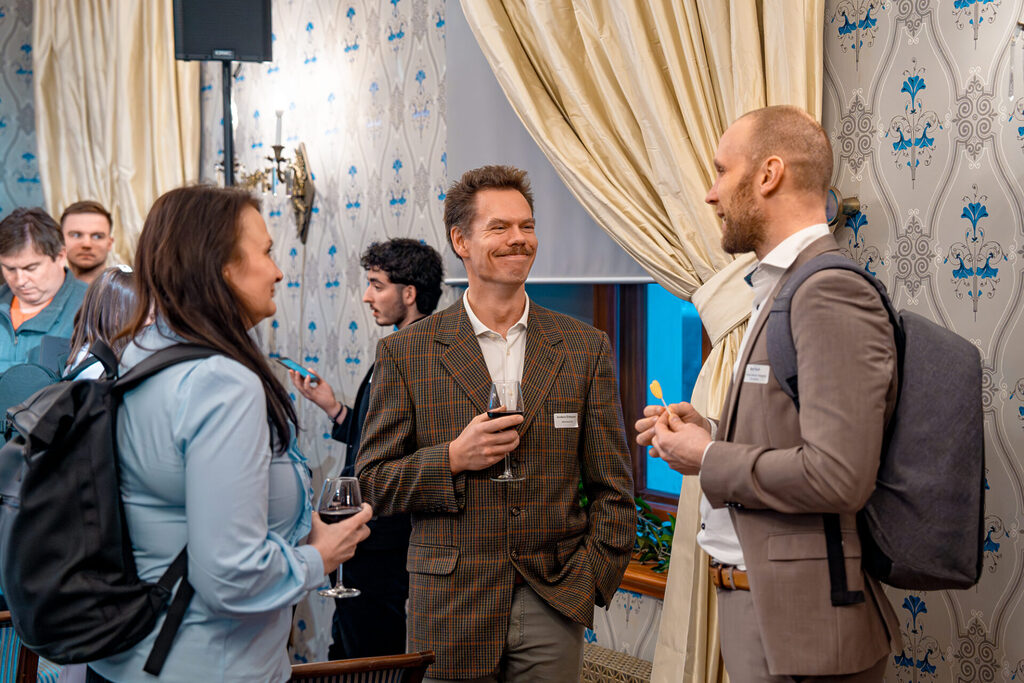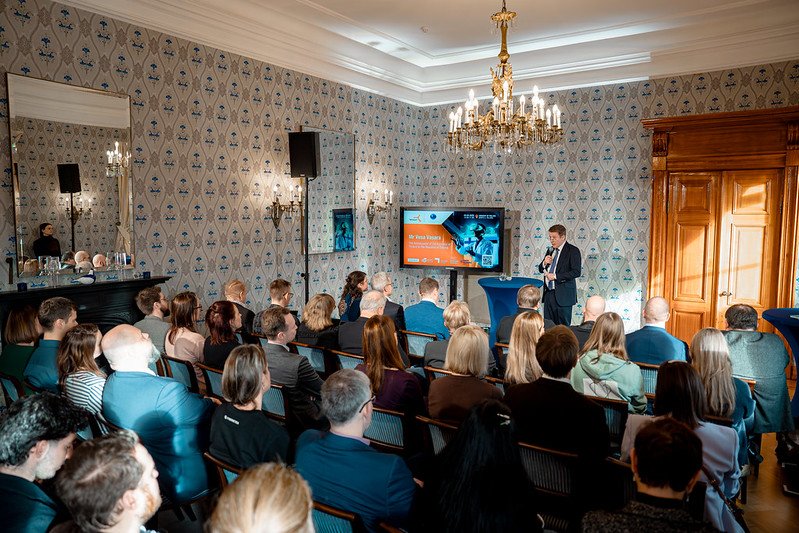Artificial Intelligence (AI) is revolutionising healthcare across Europe, and Finland and Estonia are leading the way. On 4th February, experts from Finland and Estonia gathered at the Finnish Embassy in Tallinn to discuss how AI is transforming healthcare. The event brought together government officials, healthcare professionals, and AI innovators to explore AI’s role in improving patient care, streamlining hospital operations, and navigating regulations.
The event was organised by Tehnopol in collaboration with HealthTech Finland, Business Helsinki, Helsinki Health Incubator and Enterprise Estonia.
AI as a solution for healthcare challenges
Opening the event, Finnish Ambassador to Estonia, Mr Vesa Vasara, highlighted AI’s role in tackling rising healthcare costs and enhancing business opportunities. AI is already making a tangible impact, with a Finnish company securing a deal with an Estonian hospital through previous Estonia-Finland collaboration event.
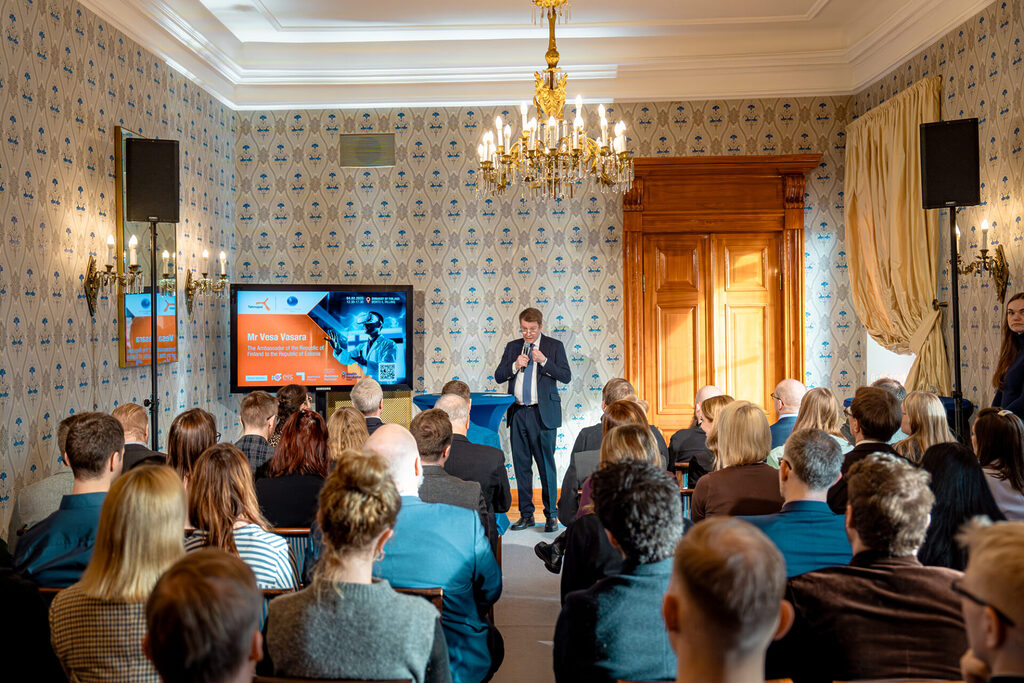
Jukka Lähesmaa from Finland’s Ministry of Social Affairs and Health introduced Finland’s AI ecosystem, designed to optimise healthcare processes and foster business innovation. The government has identified 50 promising AI applications, funding ten projects in areas such as:
- AI-assisted medical documentation to ease doctors’ administrative workload.
- Real-time AI-driven interpretation for healthcare consultations.
- AI-powered tools to quickly summarise patient information.
Meanwhile, Rain Laane, Head of the Estonian Health Insurance Fund, stressed that Estonia’s healthcare system is under financial strain and that AI is essential to maintaining efficiency. With a €10 million annual fund supporting AI adoption, Estonia is investing heavily in AI-driven healthcare solutions that improve efficiency and patient care. Estonia is already using AI for automating medical documentation, fraud detection in medical billing, and clinical decision support. The country’s genome bank is being leveraged for AI-driven early cancer screening, aiming to make personalised medicine a reality.
Both countries agree – AI is no longer a luxury but a necessity to keep healthcare running efficiently.
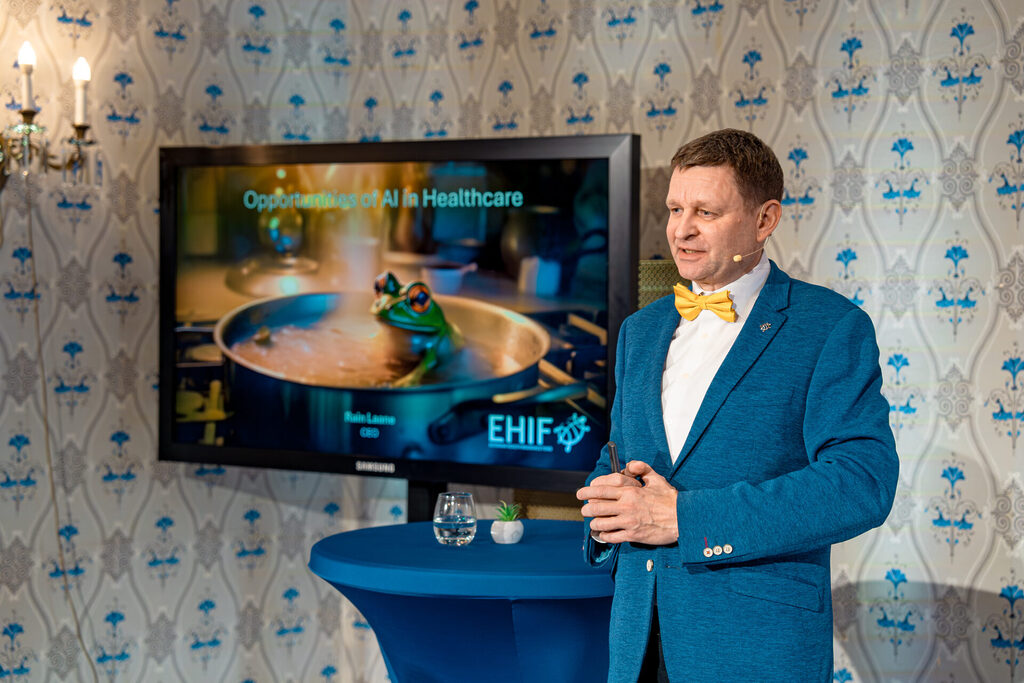
Implementing AI in hospitals – what could go wrong?
Hospitals are already using AI to make healthcare more effective. At Helsinki University Hospital (HUS), AI is being used for:
- Medical translations, particularly for treating refugees.
- Predicting hospital bed demand to ensure resources are available.
- Helping emergency rooms estimate waiting times.
- Detecting diseases like Parkinson’s and head trauma earlier.
However, using AI in hospitals comes with challenges. Patrik Koskinen, Head of HUS’s AI Unit, explained that AI tools need to comply with strict regulations to ensure patient safety.
In Estonia, Viljandi General Hospital is pioneering a patient-centric AI approach. Chief Medical Officer Mart Kull highlighted the hospital’s new integrated healthcare hub, “Tervikum,” which combines primary, specialist, and social care. AI is central to this vision, supporting mobile hospitals, home-based care, helping doctors with faster diagnostics, such as detecting lung cancer, and providing AI-generated checklists to align patient care with medical guidelines. He emphasised that AI will not replace doctors but will enhance decision-making and efficiency.
Despite the benefits, Seppo Vahasalo from SGS Fimko warned that AI-based medical devices face strict regulations under the EU’s Medical Device Regulation (MDR). Companies developing AI tools must carefully plan their approval processes to avoid delays. He stressed the importance of defining a medical device’s intended use early in development and ensuring compliance with evolving AI regulations.
Bridging regulation and innovation through AI sandboxes
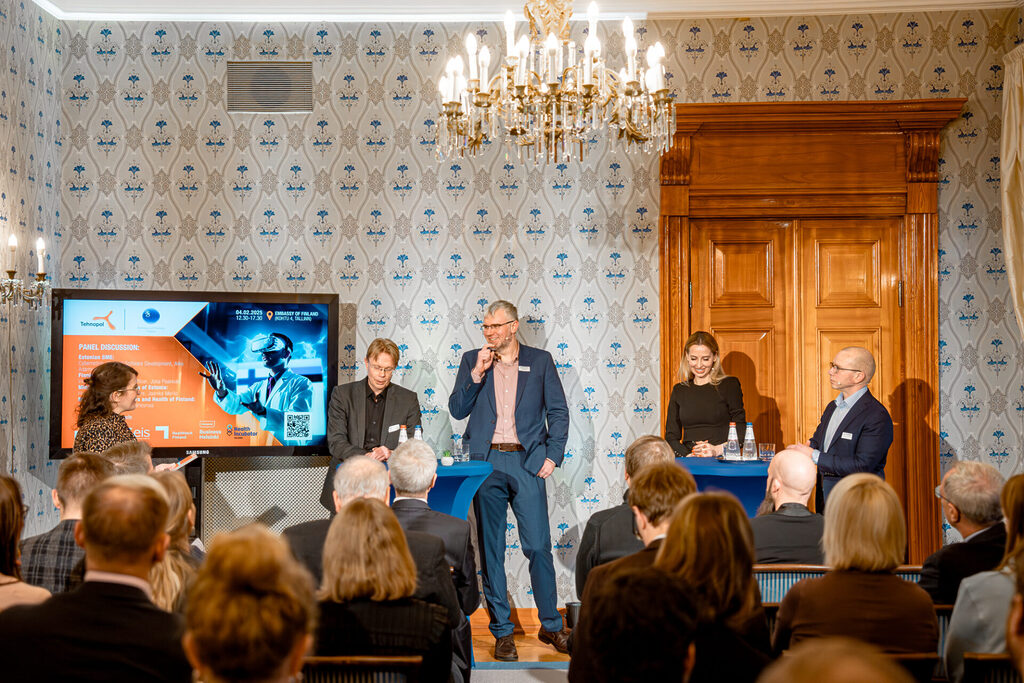
A panel discussion explored regulatory sandboxes—controlled environments where AI solutions can be tested under regulatory supervision. Representatives from the governments of Estonia and Finland, along with companies using AI, debated how sandboxes could help startups navigate complex regulations and accelerate AI adoption in healthcare. The panel featured Jaanika Merilo (Head of Digital Health and Care, Ministry of Social Affairs of Estonia), Jukka Lähesmaa (Consulting Officer, Ministry of Social Affairs and Health of Finland), Aiko Adamson (Head of Software Development, Cybernetica), and Juha Paakkola (Chief Commercial Officer, Veil.AI).
Key takeaways included:
- The need for structured healthcare data to support AI innovation.
- Faster regulatory approval processes to keep up with AI advancements.
- Cross-border collaboration between Estonia and Finland to create unified AI sandboxes.
While sandboxes offer a solution, challenges remain in funding, data access, and real-world integration within healthcare institutions. Panelists agreed that Europe must provide better incentives to support AI startups and avoid losing talent to countries with simpler regulatory processes.
AI tools and security considerations
Several innovative tools were presented to support AI integration in healthcare. Heikki Pitkänen introduced Lean Entries, a tool simplifying regulatory compliance for health tech innovators. Aiko Adamson from Cybernetica discussed privacy and security risks in AI applications, emphasizing GDPR compliance and the prevention of AI vulnerabilities. Laura Piila from Optomed showcased AI-driven retinal imaging for early disease detection, highlighting the company’s FDA-approved handheld fundus camera for diabetic retinopathy screening.
These tools are making healthcare more accessible, efficient, and secure, demonstrating AI’s potential beyond hospitals and into everyday patient care.
The future of AI in healthcare
The event highlighted AI’s vast potential to boost healthcare efficiency, improve patient outcomes, and drive innovation. Moving forward, the focus will be on accelerating regulatory approvals, improving access to high-quality structured healthcare data, and strengthening public-private collaboration in AI development. Another key priority is enhancing cross-border regulatory harmonisation between Estonia and Finland.
As AI becomes an integral part of healthcare, both countries remain committed to its responsible adoption while fostering innovation. The event closed with a strong call for ongoing collaboration to ensure AI’s transformative impact is fully realised in the healthcare sector.
The full gallery of the event can be found here.
Watch the recording of the event here.
